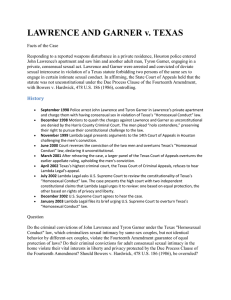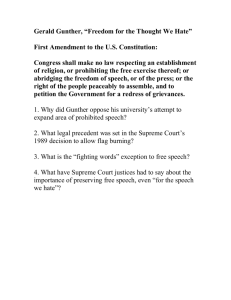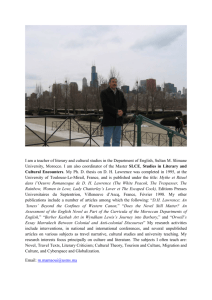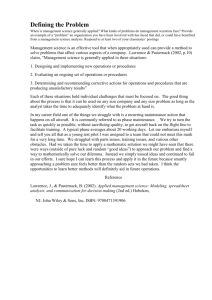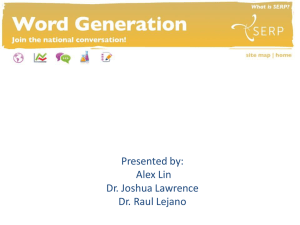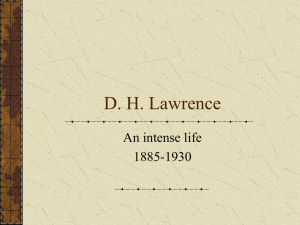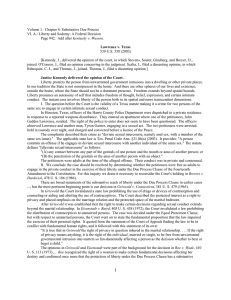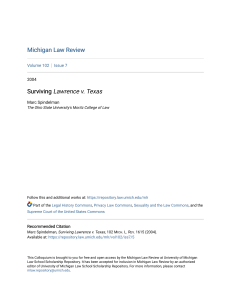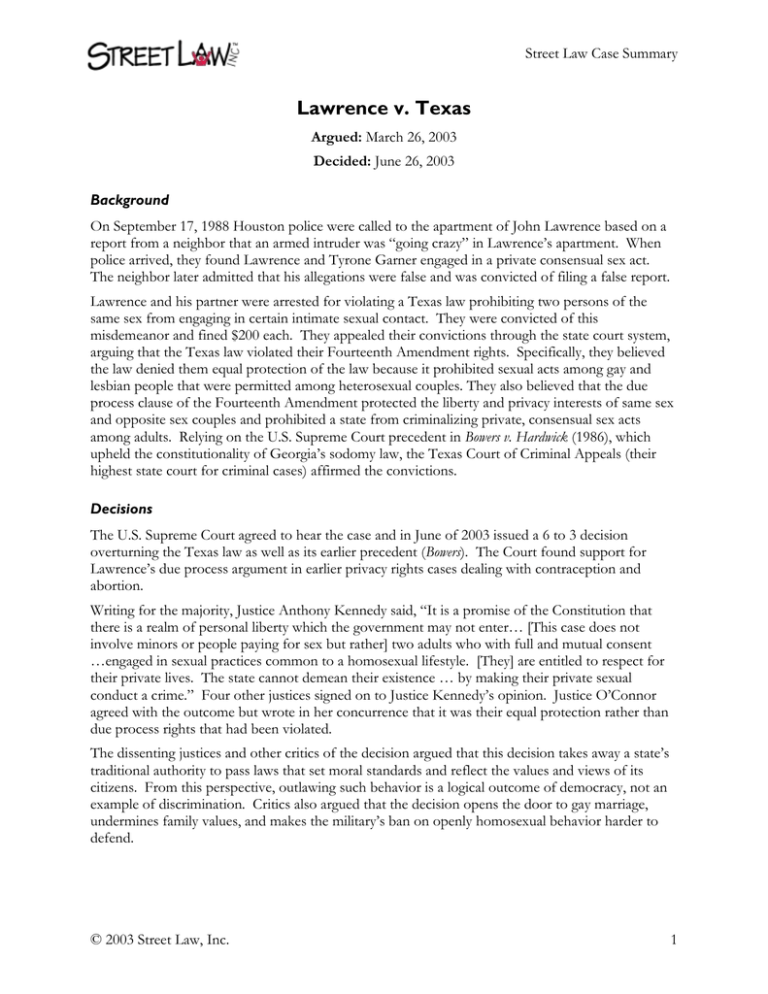
Street Law Case Summary
Lawrence v. Texas
Argued: March 26, 2003
Decided: June 26, 2003
Background
On September 17, 1988 Houston police were called to the apartment of John Lawrence based on a
report from a neighbor that an armed intruder was “going crazy” in Lawrence’s apartment. When
police arrived, they found Lawrence and Tyrone Garner engaged in a private consensual sex act.
The neighbor later admitted that his allegations were false and was convicted of filing a false report.
Lawrence and his partner were arrested for violating a Texas law prohibiting two persons of the
same sex from engaging in certain intimate sexual contact. They were convicted of this
misdemeanor and fined $200 each. They appealed their convictions through the state court system,
arguing that the Texas law violated their Fourteenth Amendment rights. Specifically, they believed
the law denied them equal protection of the law because it prohibited sexual acts among gay and
lesbian people that were permitted among heterosexual couples. They also believed that the due
process clause of the Fourteenth Amendment protected the liberty and privacy interests of same sex
and opposite sex couples and prohibited a state from criminalizing private, consensual sex acts
among adults. Relying on the U.S. Supreme Court precedent in Bowers v. Hardwick (1986), which
upheld the constitutionality of Georgia’s sodomy law, the Texas Court of Criminal Appeals (their
highest state court for criminal cases) affirmed the convictions.
Decisions
The U.S. Supreme Court agreed to hear the case and in June of 2003 issued a 6 to 3 decision
overturning the Texas law as well as its earlier precedent (Bowers). The Court found support for
Lawrence’s due process argument in earlier privacy rights cases dealing with contraception and
abortion.
Writing for the majority, Justice Anthony Kennedy said, “It is a promise of the Constitution that
there is a realm of personal liberty which the government may not enter… [This case does not
involve minors or people paying for sex but rather] two adults who with full and mutual consent
…engaged in sexual practices common to a homosexual lifestyle. [They] are entitled to respect for
their private lives. The state cannot demean their existence … by making their private sexual
conduct a crime.” Four other justices signed on to Justice Kennedy’s opinion. Justice O’Connor
agreed with the outcome but wrote in her concurrence that it was their equal protection rather than
due process rights that had been violated.
The dissenting justices and other critics of the decision argued that this decision takes away a state’s
traditional authority to pass laws that set moral standards and reflect the values and views of its
citizens. From this perspective, outlawing such behavior is a logical outcome of democracy, not an
example of discrimination. Critics also argued that the decision opens the door to gay marriage,
undermines family values, and makes the military’s ban on openly homosexual behavior harder to
defend.
© 2003 Street Law, Inc.
1

